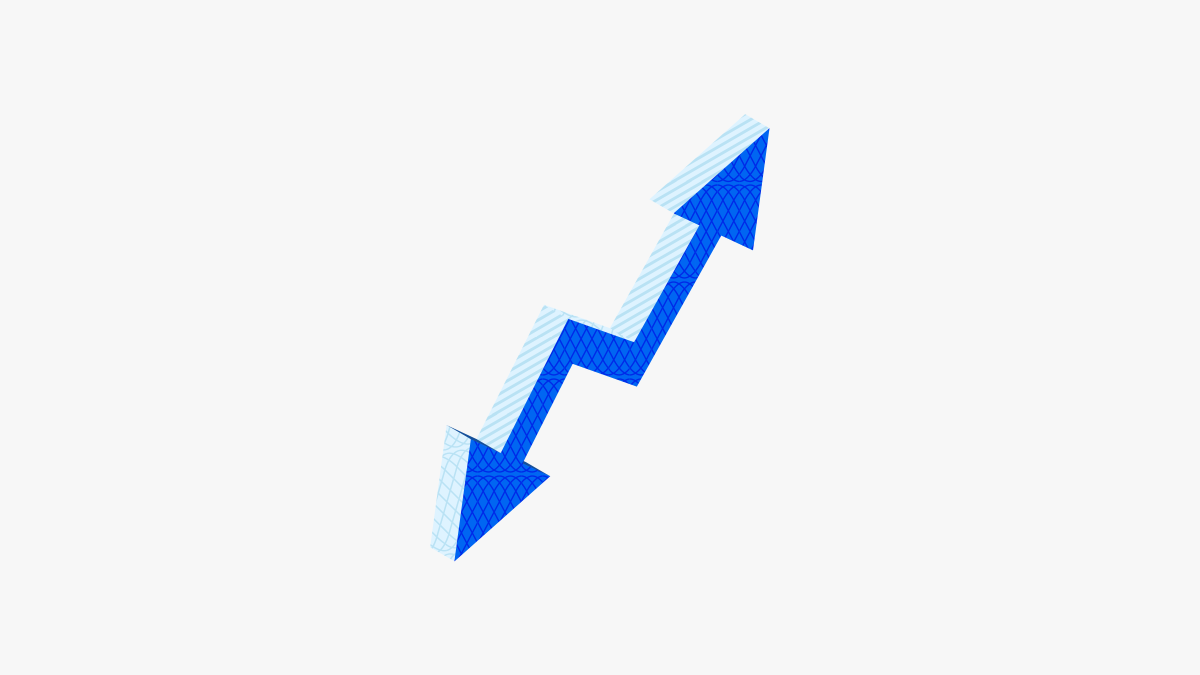
CFD vs ETF
| # | CFD | ETF |
| 1 | CFD (Contract for Difference) is a financial derivative product that allows traders to speculate on the price movement of an underlying asset. | ETF is a type of investment fund and exchange-traded product that tracks an underlying basket of assets. |
| 2 | CFDs are traded on margin i.e. traders only need to deposit a fraction of the full value of the trade. | ETFs are traded like stocks on an exchange. |
| 3 | The aim is to profit from price changes of the underlying asset. | The aim is to get exposure to a diversified portfolio of assets. |
| 4 | No ownership of the underlying asset. | Ownership of underlying assets. |
| 5 | Higher risk due to leverage and the short-term nature of trades. | Lower risk due to diversification and the longer-term nature of the investment. |
| 6 | Suitable for short-term traders and high-risk tolerance investors. | Suitable for long-term and low-risk tolerance investors. |
CFD
A CFD (Contract for Difference) is a financial derivative product that allows traders to speculate and benefit from the price movement of an asset without actually owning the asset.
The profit or loss from a CFD trade is determined by the difference between the price at which the trader enters the trade and the price at which they close it.
CFDs are generally used for short-term trading purposes and are considered to be high-risk investments.
CFDs are pretty much an advanced trading strategy.
ETF
An ETF (Exchange Traded Fund) is a type of investment fund with shares that are tradeable on a stock exchange.
ETFs are like mutual funds, but trade like a stock on an exchange. They are exchange-traded investment vehicles that typically mirror a particular index.
ETFs offer investors a convenient way to gain exposure to a diversified portfolio of assets in a single investment.
Learn more about ETFs in detail.
Advantages and Disadvantages of CFD
Advantages of CFD
- Leverage: CFDs are traded on margin, which means that traders only need to deposit a fraction of the full value of the trade.
- Flexibility: CFDs allow traders to take both long (buy) and short (sell) positions on the price of an underlying asset.
- Wide range of markets: CFDs are available on a wide range of markets, including stocks, indices, commodities, currencies, and cryptocurrencies.
- Low cost: CFDs typically have low transaction costs compared to instruments like futures or options.
- 24/7 trading: CFDs are traded over-the-counter, which means that they can be traded around the clock.
- Ease of access: CFDs can be traded through online brokers.
- Diversification: Many CFD providers offer CFDs on international shares in addition to items you easily cannot trade, such as gold, silver, oil, indices, etc.
- Portfolio protection: With CFDs, investors can sell certain short stocks, sector indices, or leading indexes without selling any of their portfolio shares.
Disadvantages of CFD
- High risk: CFDs are leveraged products, which means that traders can potentially lose more than their initial investment. Even though you don’t have to deposit the total value, you risk losing your initial margin.
- Complexity: CFDs can be complex to understand, especially for inexperienced traders.
- OTC market: CFDs are traded over-the-counter (OTC), meaning that they are not traded on regulated exchanges. This can increase the risk of market manipulation.
- Fees: Spread costs, overnight financing charges, and broker fees can significantly impact profitability.
- Limited regulation: CFDs are not regulated in the same way as other financial instruments, such as stocks which can limit the protection available to traders in the event of broker insolvency or market manipulation.
- Short-term focus: CFDs are designed for short-term trading. Traders need to be constantly monitoring the markets which can be time-consuming and stressful.
- No ownership: Since the CFD investor does not own the underlying asset, the investor has no shareholder or voting rights.
- Payment of spread: The major drawback of CFDs is the instant reduction of the investor’s original position, which is caused by the amount of the spread when entering the CFD. The same happens when exiting.
CFD vs Stocks
The main difference between CFD and stocks is ownership and leverage. You become the owner of the shares when you purchase a stock and you must pay the full share price.
In CFD, without holding the underlying asset, you can speculate on the price by engaging in online CFD trading. You can enter a trade with a lower initial investment because they trade on leverage.
CFD vs Futures
The main difference between CFDs and futures is liquidity and financing. CFD orders are typically more easily completed and have lower entry requirements than futures contracts. Futures are usually traded on exchanges, whereas CFDs are traded directly with brokers.
Can an ETF be a CFD?
ETF and CFD are different financial instruments.
Is CFD better than investing?
Neither is better than the other. It just depends on your short-term or long-term financial goals.
CFD trading allows you to speculate on share prices without holding any shares while investing allows you to assume direct ownership of shares. If the value of the shares you purchase increases over their original cost, investing can be profitable.
? Understand that CFDs are high-risk investments and may not be suitable for all investors. It is always advisable to seek professional advice to fully understand the risks involved before trading in CFDs.
Get Access to Secure Investments on Cowrywise

ALSO READ
Investing vs Trading: Which Is More Profitable?
